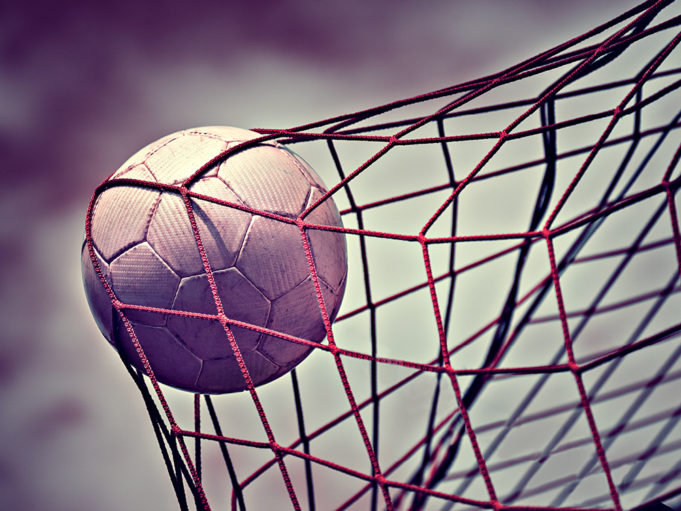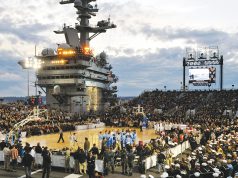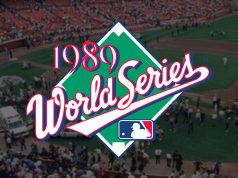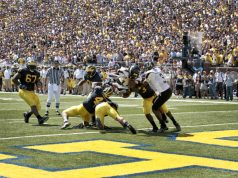You would think after officiating more than 166 minutes of a soccer game, the sweat-soaked officials had put in a full day and would have been entitled to a little rest. But, oh, no. Referee Brian Hall and assistant referees John Kennedy and Peter Gerlach weren’t quite finished, even though they had just finished working a record-setting, eight-overtime NCAA Division I men’s soccer championship between UCLA and American University.
Seems there was a curious Washington Post reporter on the line, who had made a call to the hotel where the officials were staying after the game.
No, for the officiating crew on Dec. 14, 1985, rest would have to wait. The caller had a question or two about a controversial call that led to the only goal in the four-plus-hour contest between the two best college soccer teams in the nation.
Even though the phone call came in close to midnight, it seemed a legitimate — albeit somewhat ill-timed — query.
“I had never experienced anything like that before or since in my refereeing career,” said Hall, who drew the lead officiating assignment that day at the tender age of 24. “To have a reporter contact the officials’ hotel to get a quote about a call is something I had never heard of before. I simply told him we would not answer any questions like that. And, in all the years since — I retired in 2008 — I’ve never had that happen again.”
That from a referee who has since officiated in MLS and in the 2002 World Cup in Korea and Japan before retiring to work for U.S. Soccer and is now the CONCACAF Director of Refereeing. Indeed, if Hall has not seen it since, the reporter’s call was a rarity.
But the entire 1985 title game was a rarity.
Armed with a lineup of all California players, the UCLA Bruins were dominant in 1985, finishing the season with a 20-1-4 record. The American University Eagles began the season by winning 12 of their first 13 games as they captured the Colonial Athletic Association title.
After disposing of every hurdle in its way through the NCAA tournament, American found itself at the Kingdome in Seattle, paired against UCLA in the national championship game, in what some consider — still to this day — to be the greatest college soccer game ever played.
“It was a great match-up of two great teams,” said Kennedy, who was a 35-year-old assistant referee that day. “As it turned out, no one could have predicted just how closely matched the teams were.”
The title game turned out to be one for the ages, as the teams battled it out for a record 166 minutes and five seconds. Both defenses were impenetrable. The teams combined for 47 shots. American dominated in the first half, outshooting UCLA, 10-2. All-America forward Michael Brady came closest to scoring in the first stanza, but his shot from 25 yards out went just wide right.
The Bruins controlled possession in the second half and gained a big edge when Eagle defender Serge Torreilles was ejected for violent conduct, but UCLA was unable to capitalize.
That penalty was controversial, but it proved to be an easy call for Kennedy, who spotted the infraction, raised his flag and discussed the play with Hall.
“I told Brian, ‘He head-butted him intentionally, pure and simple; we’ve got to eject him,’” Kennedy said. “Brian looked at me at first and said, ‘You realize we’ve got the Division I national championship on the line and we’re going to put them one man down?’
“I told him, ‘I know that, but there was no way we can get around ejecting him, it was that blatant.’ So, to his credit, Brian didn’t hesitate. He ejected the player, and American University played a man short for the rest of the game. As it turned out, the Eagles played their hearts out and it didn’t seem to have an impact on the rest of the game because no one scored for quite some time.”
Fatigue, coupled with a slippery and hard Astroturf field, played a major factor in the game.
“Players were cramping up, and were fighting fatigue as well,” said Hall, who said he was “luckily very fit and ready to go as long as it took to finish.”
Kennedy said, “Peter Gerlach and I were talking among ourselves, saying how happy we were that the youngster, Brian, was in the middle because he was an absolute stud and was able to run so much more than we would have been able to. We were a bit older, but Brian never seemed to get tired.”
The playing surface also played a role in the way the game played out.
“You’ve got to remember, this is in the old days of Astroturf at the Kingdome, when it was basically a thin layer of turf laid out over cement,” Kennedy explained. “Your legs really take a pounding over a long period of time, and that was a long period of time. Players were saying they could hardly stand up after a while.”
Short sudden-death overtime periods of 10 minutes each prevented any opportunity of establishing rhythm. Finally, nearly four hours after the initial whistle blew, opportunity struck.
Injured for most of the season and nearly red-shirted, little-used Andy Burke was making his first NCAA tournament appearance of the year for UCLA, entering during overtime.
In the 167th minute, he worked himself free to receive a pass, caught the American goalkeeper cheating to the near post and scored on a far-post shot from 13 yards out.
The goal was his first as a Bruin.
The goal was not without controversy. Brady, American’s top player, went down with a leg cramp as the play carried toward the American net. Hall elected to keep play moving because he deemed the cramp not to be a major injury. UCLA scored on the play, and controversy ensued.
Hall and the rest of his officiating crew know he made the right decision by letting the play continue.
And the rest is history.
Burke scored the goal, ending the longest-ever 1985 NCAA men’s soccer championship game.
The national championship overtime rule changed in 1989 to two 15-minute periods followed by 15-minute sudden-death periods until a goal is scored or conditions force an end. In 1990, penalty kicks were added. Today, if the title game score is tied after two 10-minute sudden-victory periods, penalty kicks determine the winner.
What's Your Call? Leave a Comment:
Note: This article is archival in nature. Rules, interpretations, mechanics, philosophies and other information may or may not be correct for the current year.
This article is the copyright of ©Referee Enterprises, Inc., and may not be republished in whole or in part online, in print or in any capacity without expressed written permission from Referee. The article is made available for educational use by individuals.



















